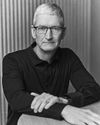At the start of 2018, Mark Zuckerberg set out to fix Facebook. Sixteen months later, here’s how that turned out.

THE STREETS OF DAVOS, SWITZERLAND, were iced over on the night of January 25, 2018, which added a slight element of danger to the prospect of trekking to the Hotel Seehof for George Soros’ annual banquet. The aged financier has a tradition of hosting a dinner at the World Economic Forum, where he regales tycoons, ministers, and journalists with his thoughts about the state of the world. That night he began by warning in his quiet, shaking Hungarian accent about nuclear war and climate change. Then he shifted to his next idea of a global menace: Google and Facebook. “Mining and oil companies exploit the physical environment; social media companies exploit the social environment,” he said. “The owners of the platform giants consider themselves the masters of the universe, but in fact they are slaves to preserving their dominant position ... Davos is a good place to announce that their days are numbered.”
Across town, a group of senior Facebook executives, including COO Sheryl Sandberg and vice president of global communications Elliot Schrage, had set up a temporary headquarters near the base of the mountain where Thomas Mann put his fictional sanatorium. The world’s biggest companies often establish receiving rooms at the world’s biggest elite confab, but this year Facebook’s pavilion wasn’t the usual scene of airy bonhomie. It was more like a bunker—one that saw a succession of tense meetings with the same tycoons, ministers, and journalists who had nodded along to Soros’ broadside.
Diese Geschichte stammt aus der May 2019-Ausgabe von WIRED.
Starten Sie Ihre 7-tägige kostenlose Testversion von Magzter GOLD, um auf Tausende kuratierte Premium-Storys sowie über 8.000 Zeitschriften und Zeitungen zuzugreifen.
Bereits Abonnent ? Anmelden
Diese Geschichte stammt aus der May 2019-Ausgabe von WIRED.
Starten Sie Ihre 7-tägige kostenlose Testversion von Magzter GOLD, um auf Tausende kuratierte Premium-Storys sowie über 8.000 Zeitschriften und Zeitungen zuzugreifen.
Bereits Abonnent? Anmelden

MOVE SLOWLY AND BUILD THINGS
EVERYTHING DEPENDS ON MICROCHIPS-WHICH MEANS TOO MUCH DEPENDS ON TAIWAN. TO REBUILD CHIP MANUFACTURING AT HOME, THE U.S. IS BETTING BIG ON AN AGING TECH GIANT. BUT AS MONEY AND COLOSSAL INFRASTRUCTURE FLOW INTO OHIO, DOES TOO MUCH DEPEND ON INTEL?

FOLLOW THAT CAR
CHASING A ROBOTAXI FOR HOURS AND HOURS IS WEIRD AND REVELATORY, AND BORING, AND JEALOUSY-INDUCING. BUT THE DRIVERLESS WORLD IS COMING FOR ALL OF US. SO GET IN AND BUCKLE UP.

REVENGE OF THE SOFTIES
FOR YEARS, PEOPLE COUNTED MICROSOFT OUT. THEN SATYA NADELLA TOOK CONTROL. AS THE COMPANY TURNS 50, IT'S MORE RELEVANT-AND SCARIER-THAN EVER.

THE NEW COLD WARRIOR
CHINA IS RACING TO UNSEAT THE UNITED STATES AS THE WORLD'S TECHNOLOGICAL SUPERPOWER

CALIFORNIA DREAMIN'
KINDRED MOTORWORKS VW BUS - Despite being German, the VW T1 Microbus is as Californian as the Grateful Dead.

THE INSIDE SCOOP ON DESSERT TECH
A lab in Denmark works to make the perfect ice cream. Bring on the fava beans?

CONFESSIONS OF A HINGE POWER DATER
BY HIS OWN estimation, JB averages about three dates a week. \"It's gonna sound wild,\" he confesses, \"but I've probably been on close to 200 dates in the last year and a half.\"

THE WATCHFUL INTELLIGENCE OF TIM COOK
APPLE INTELLIGENCE IS NOT A PLAY ON \"AI,\" THE CEO INSISTS. BUT IT IS HIS PLAY FOR RELEVANCE IN ALL AREAS, FROM EMAIL AUTO-COMPLETES TO APPS THAT SAVE LIVES.

COPYCATS (AND DOGS)
Nine years ago, a pair of freshly weaned British longhair kittens boarded a private plane in Virginia and flew to their new home in Europe.

STAR POWER
The spirit of Silicon Valley lives onat this nuclear fusion facility's insane, top-secret opening ceremony.